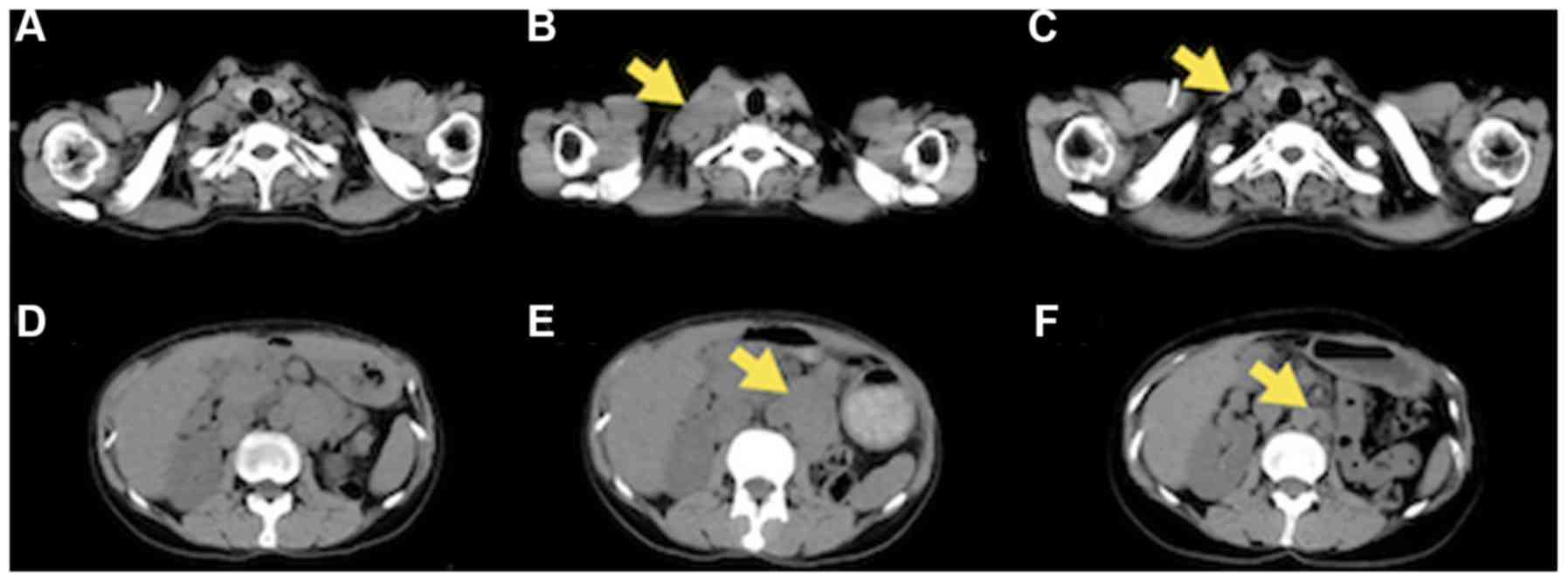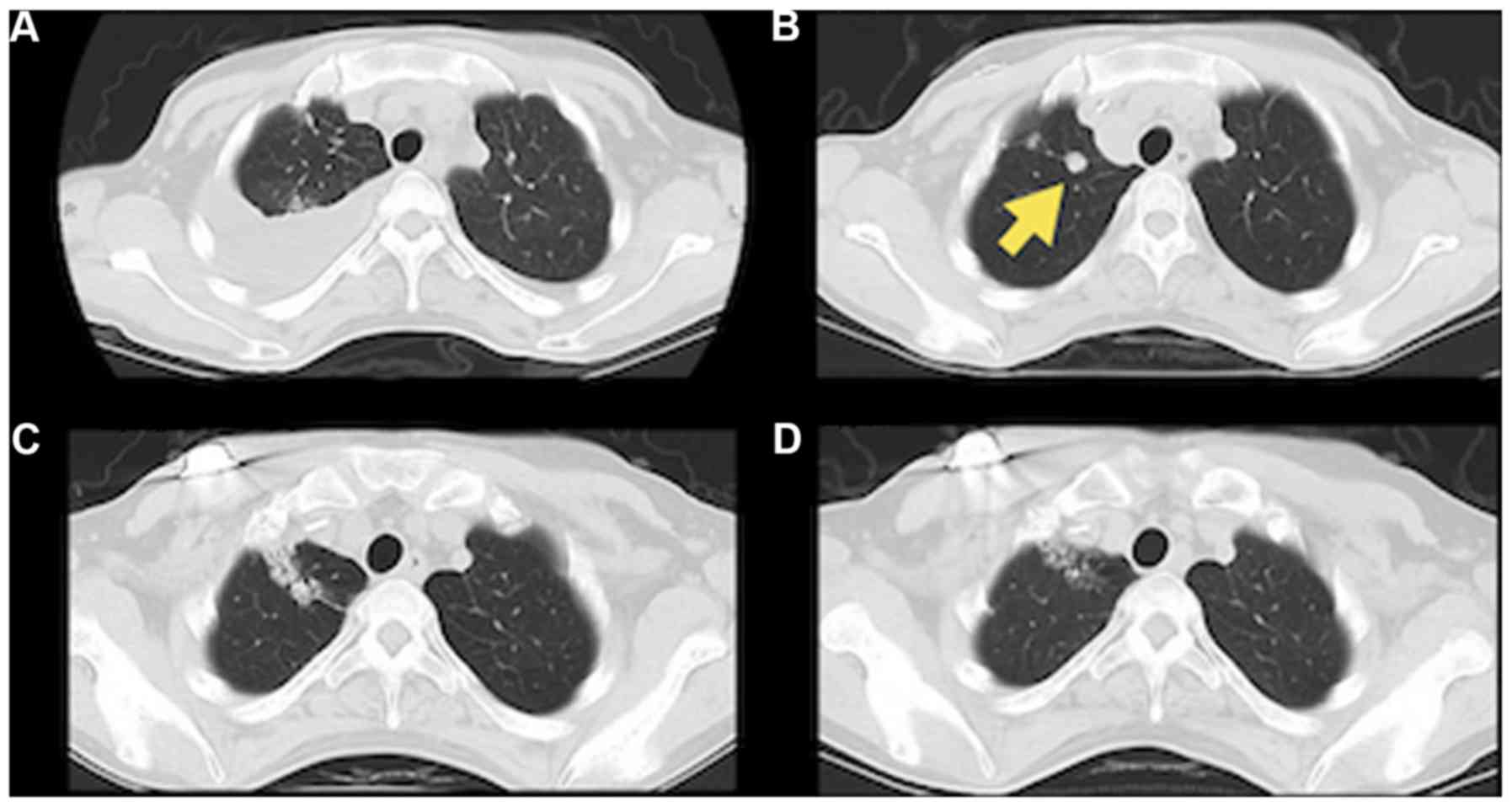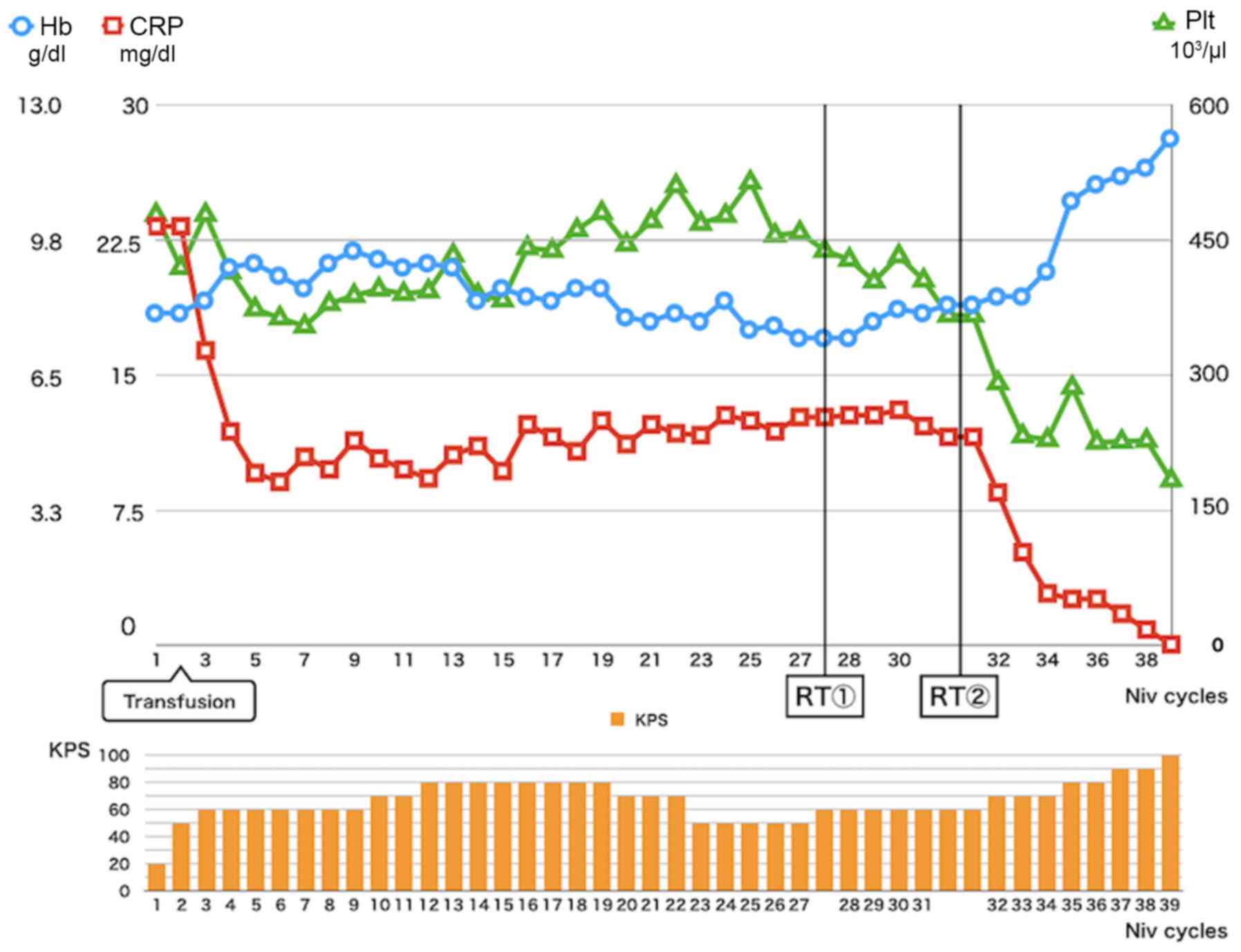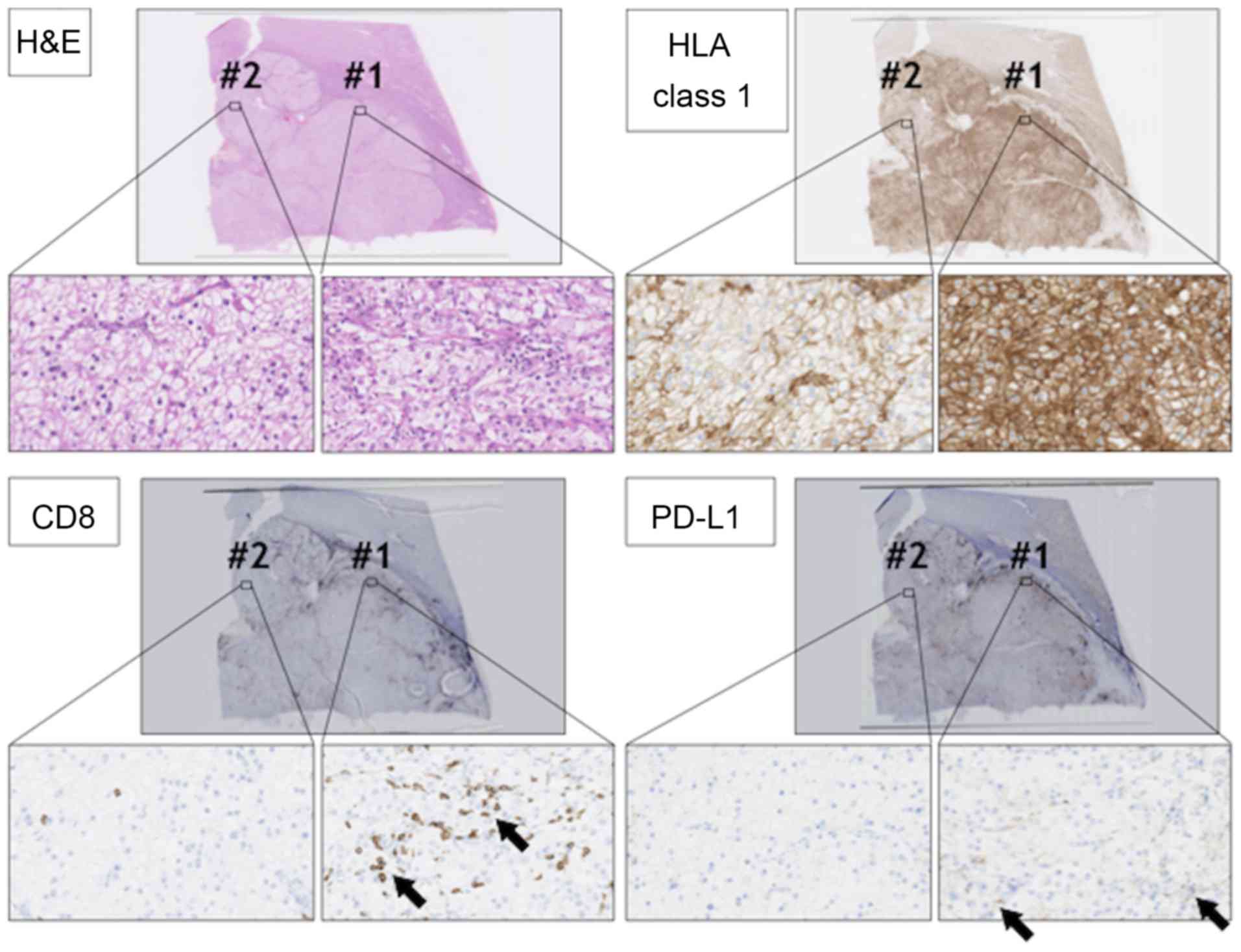Spandidos Publications style
Hori K, Hirohashi Y, Aoyagi T, Taniguchi N, Murakumo M, Miyata H, Torigoe T, Abe T, Shinohara N, Morita K, Morita K, et al: Abscopal effect following nivolumab induction in a patient with metastatic renal cell carcinoma‑unique pathological features of the primary specimen: A case report. Exp Ther Med 19: 1903-1907, 2020.
APA
Hori, K., Hirohashi, Y., Aoyagi, T., Taniguchi, N., Murakumo, M., Miyata, H. ... Morita, K. (2020). Abscopal effect following nivolumab induction in a patient with metastatic renal cell carcinoma‑unique pathological features of the primary specimen: A case report. Experimental and Therapeutic Medicine, 19, 1903-1907. https://doi.org/10.3892/etm.2020.8423
MLA
Hori, K., Hirohashi, Y., Aoyagi, T., Taniguchi, N., Murakumo, M., Miyata, H., Torigoe, T., Abe, T., Shinohara, N., Morita, K."Abscopal effect following nivolumab induction in a patient with metastatic renal cell carcinoma‑unique pathological features of the primary specimen: A case report". Experimental and Therapeutic Medicine 19.3 (2020): 1903-1907.
Chicago
Hori, K., Hirohashi, Y., Aoyagi, T., Taniguchi, N., Murakumo, M., Miyata, H., Torigoe, T., Abe, T., Shinohara, N., Morita, K."Abscopal effect following nivolumab induction in a patient with metastatic renal cell carcinoma‑unique pathological features of the primary specimen: A case report". Experimental and Therapeutic Medicine 19, no. 3 (2020): 1903-1907. https://doi.org/10.3892/etm.2020.8423



















